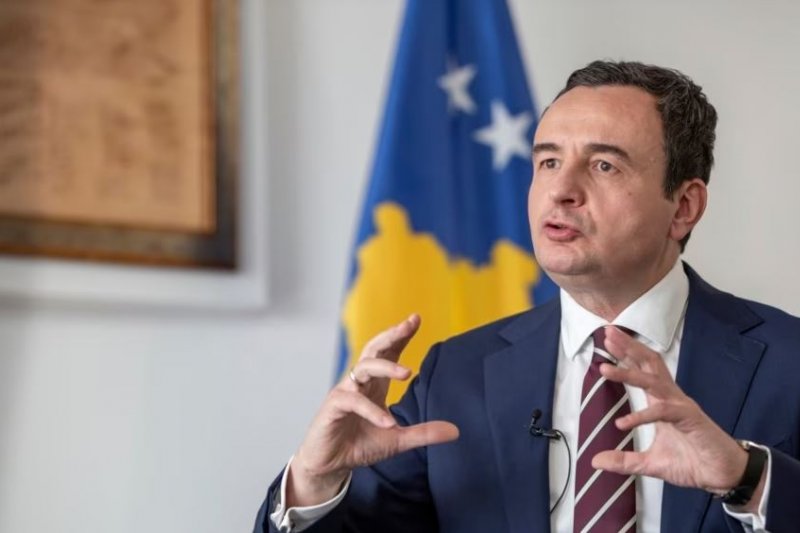Kurti Says 'No' to Normalization of Relations without Security in Kosovo
The Prime Minister of Kosovo, Albin Kurti, said that there can be no normalization of relations with Serbia, without security in Kosovo.
Kurti made these comments during an event in Shtime, when he was asked what is expected to be demanded from Kosovo during the visit of five international representatives on October 21.
"We will find out tomorrow what they will ask for and what they will offer. I can say that we cannot have normalization without security and the security of Kosovo should be a priority for the state institutions, for the people and the society", said Kurti.
On October 21, in Kosovo and Serbia, the European Union envoy for dialogue, Miroslav Lajçak, together with the emissaries of Germany, France, Italy and the United States, will meet in Pristina with the Prime Minister of Kosovo, Albin Kurti, and in Belgrade with the Serbian president, Aleksandar Vucic.
The EU has said that the main purpose of the visit to Kosovo and Serbia is to revive the dialogue, with the aim that the parties implement the obligations arising from the agreements reached, but also to restore stability in the north of Kosovo, inhabited by a Serbian majority.
Together with Lajcak, Emanuel Bonne, advisor for security and foreign policy of the French president, advisor of the German chancellor, Jens Plotner, and that of the Italian prime minister, Francesco Talo, will also be on the visit. The American special envoy for the Western Balkans, Gabriel Escobar, will be with them in the delegation.
International diplomats are also expected to push forward the implementation of the Agreement towards normalization, which Kosovo and Serbia reached earlier this year.
During his speech to journalists, Kurti again blamed Serbia for not implementing the agreement, which, according to him, is based on the de facto recognition of Kosovo.
This agreement, of 11 articles, provides, among other things, a level of self-management for the Serbian community in Kosovo and mutual recognition of state symbols, while asking Pristina and Belgrade to also implement all previous dialogue agreements.
The visit to Kosovo and Serbia by the group known as the "Big Five" is the first since the attack on September 24 against the Kosovo police in Banjska of Zveçan.
Diplomatic sources in Brussels informed that with this visit this delegation also wants to send the message that there is unity in the EU as well as between the EU and the US in the position that the Agreement towards normalization will not be abandoned and will require from the parties a commitment to respect the obligations.
Although most diplomats in Brussels say that "after the September 24 attack in Banjska, things have changed", they are not sure how much this will directly affect the dialogue process. However, the events in Banjska, which the high representative of the EU, Josep Borrell, and the European Parliament have called "terrorist attacks" have turned crisis management into a priority for the EU as well, alongside efforts to progress in the normalization process.
The diplomats' expectations are that the main demand for Kosovo will be to find a way for "the fastest possible organization of local elections in the four municipalities in the north" and the commitment to start the establishment of the Association of municipalities with a Serbian majority. Serbia will be asked first of all to distance itself from any action that could destabilize the north of Kosovo and also to implement the agreements that were reached earlier in the dialogue.
Expectations in the EU from this visit are high, but this time, the diplomats said, not many details have been given about what concrete requests this delegation will make to Kosovo and Serbia.
Kosovo blames Serbia for the attack on the Kosovo Police in Banjska and demands that the European Union impose punitive measures against Serbia. The European Parliament has made a similar request through a resolution voted on October 19, which states that if there is a direct link between Serbia and the attack, Belgrade must be punished.
The EU has previously said that it is waiting for the end of the investigations and that eventual steps and measures can be taken.













